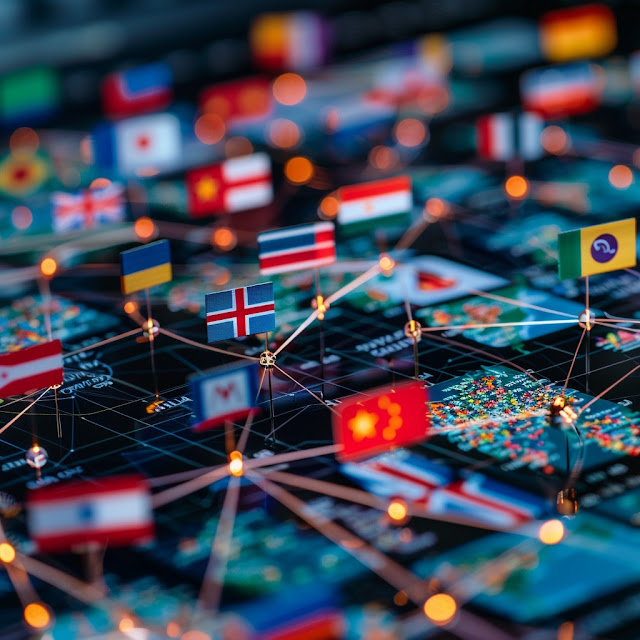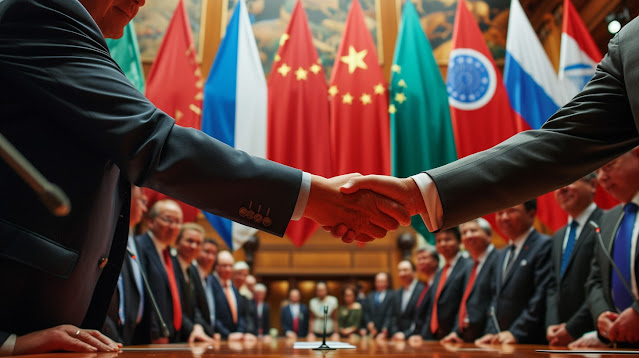Review Submit: Unraveling the Controversial Impact of Globalization on Cultural Diversity and Identity
Unraveling Globalization on Cultural Diversity and Identity
Globalization, the interconnectedness of economies, cultures, and societies on a global scale, has brought about profound changes in the way we perceive and experience the world. While proponents argue that globalization fosters economic growth and cultural exchange, critics raise concerns about its impact on cultural diversity and identity. In this controversial review, we dissect the multifaceted effects of globalization on cultural heritage, traditions, and identity, and propose solutions to mitigate its potentially adverse consequences.
The Erosion of Cultural Diversity: One of the most contentious issues surrounding globalization is its perceived role in the erosion of cultural diversity. As Western cultural norms and values become increasingly dominant in the global arena, indigenous cultures, languages, and traditions are at risk of being marginalized or extinguished altogether. The homogenization of cultures under the guise of globalization raises questions about the loss of unique identities and the commodification of cultural heritage.
Cultural Imperialism and Resistance:
Critics of globalization often point to the phenomenon of cultural imperialism, wherein dominant cultures impose their values, norms, and consumer products on less powerful societies. This unequal power dynamic perpetuates a cycle of cultural hegemony, where local traditions are subjugated in favor of Western ideals. However, resistance to cultural imperialism has sparked grassroots movements aimed at preserving indigenous knowledge, reclaiming cultural identities, and asserting cultural autonomy.
The Hybridization of Cultures:
While globalization poses threats to cultural diversity, it also fosters the hybridization of cultures through cross-cultural interactions and exchanges. Cultural fusion, syncretism, and appropriation give rise to new forms of expression, blending traditional practices with modern influences. However, this phenomenon is not without controversy, as critics argue that cultural hybridization can lead to the dilution or distortion of authentic cultural identities.
Challenges to Cultural Identity:
Globalization's impact on cultural identity is multifaceted, presenting both opportunities and challenges for individuals and communities. The proliferation of mass media, digital technologies, and globalized markets has led to the spread of Western consumer culture and the commodification of identity. As a result, many people find themselves grappling with questions of authenticity, belonging, and cultural representation in an increasingly interconnected world.
Creating Solutions:
In addressing the challenges posed by globalization to cultural diversity and identity, proactive measures must be taken to safeguard and celebrate the richness of human cultural heritage. Education plays a crucial role in promoting cultural awareness, tolerance, and appreciation from an early age. Additionally, supporting grassroots initiatives, cultural preservation efforts, and indigenous rights movements can empower communities to assert their cultural autonomy and protect their heritage.
Furthermore, policymakers and international organizations must recognize the importance of cultural diversity in sustainable development and prioritize the inclusion of cultural considerations in global governance frameworks. By fostering dialogue, collaboration, and mutual respect among cultures, we can harness the transformative potential of globalization to promote cultural diversity, foster intercultural understanding, and build a more inclusive and harmonious world.
Conclusion: As we navigate the complexities of globalization, it is essential to acknowledge its impact on cultural diversity and identity and work towards creating inclusive solutions that honor the richness and diversity of human cultures. By embracing cultural pluralism, promoting cultural exchange, and supporting grassroots initiatives, we can harness the positive aspects of globalization while safeguarding the integrity of cultural heritage for future generations.














Comments
Post a Comment